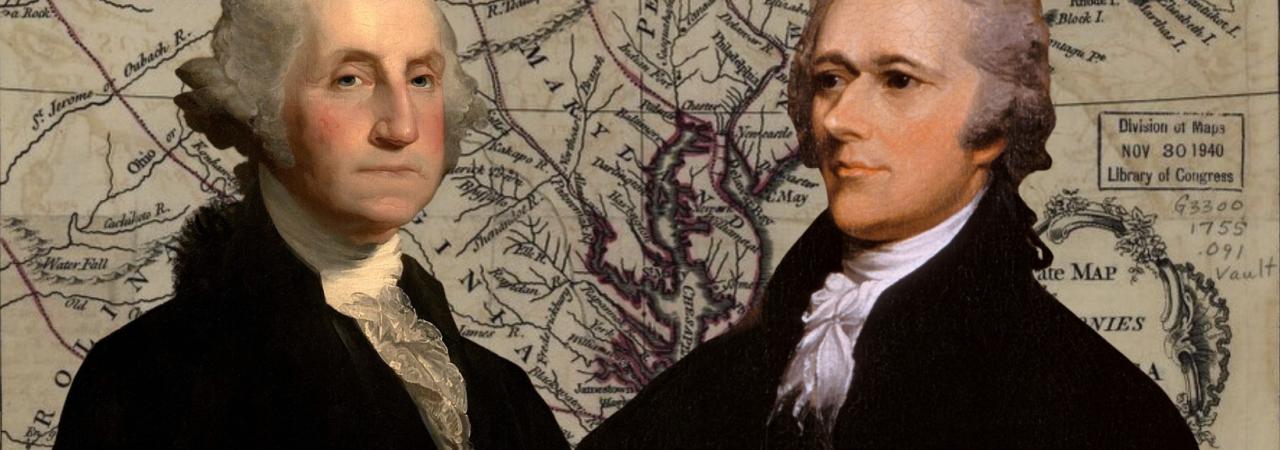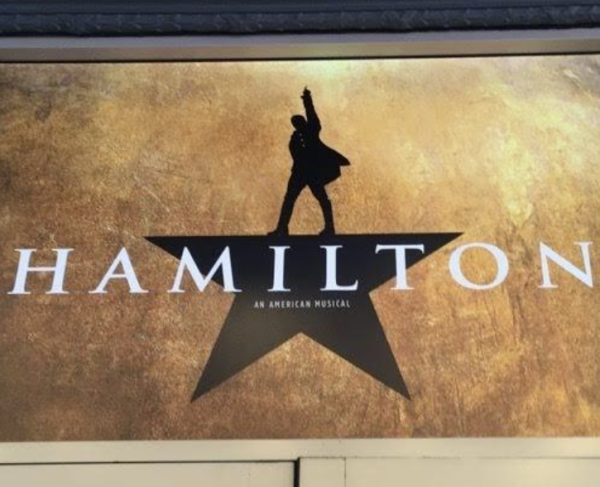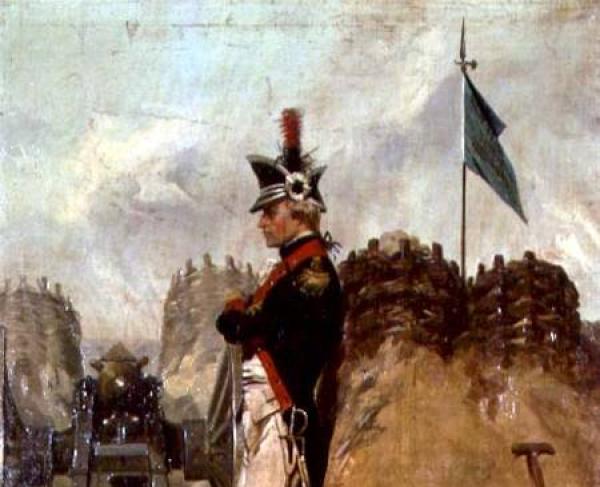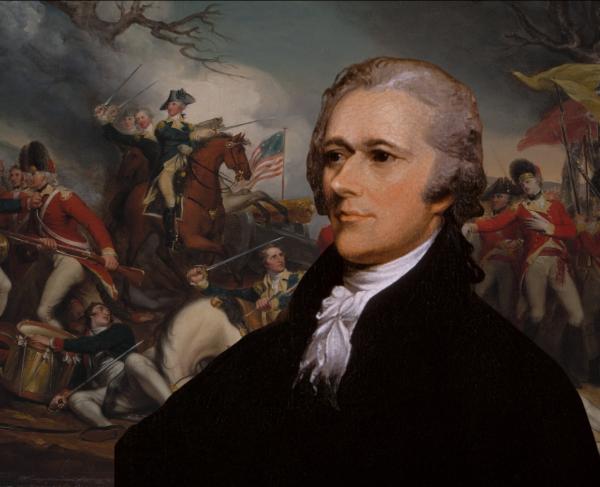
As General-in-Chief, George Washington had a monumental task: successfully lead an army of citizen-soldiers—emboldened by patriotism, but lacking by nearly every other military measure—against the British Army, arguably the best military force on Earth at the time. As if this weren’t difficult enough, the Virginia general had to contend with a weak Continental Congress, self-serving state governments, and a fractious bunch of subordinates. To tackle this hydra of dilemmas Washington surrounded himself with young, energetic officers to whom he could delegate his myriad responsibilities, from delivering dispatches to copying orders. Most of all, though, Washington considered it essential "to have persons that can think for me."
That person was Alexander Hamilton.
When Washington invited Hamilton to join his staff in January 1777, he could not have imagined the depth of Hamilton’s energetic resources, nor the breadth of his knowledge. Though just 21 years old, Hamilton had spent most of his short life studying nearly every subject from Roman history to arcane texts on foreign trade—anything that might help him rise in the world. As captain of an artillery company, he had distinguished himself during the New York and Trenton campaigns, even coming under the eye of Washington himself. He was also terribly ambitious, and initially balked at the idea of serving on the general’s staff. He longed for a combat command. Nevertheless, Hamilton accepted Washington’s offer and joined the general’s intimate "military family."
Hamilton took to his staff assignment with his trademark gusto, throwing the full weight of his talents to the revolutionary cause. Always a facile writer, Hamilton was soon scribbling notes to the Continental Congress and orders to the most powerful generals in the Continental Army. Hamilton was also frequently in the saddle for long periods, either at Washington’s side in the heat of battle, or off on errands to relay the general’s wishes to his subordinates in distant parts. As time went on, Hamilton was able anticipate Washington’s needs and increasingly spoke for the general, both on paper and in person, in a way that no other staff member could. One observer noted "[t]he pen for our army was held by Hamilton." Washington himself described his young aide-de-camp as his "principal and most confidential aide."
This post gave Hamilton a vantage point he would not otherwise have as an artillery officer. He saw the interplay between politics and war, allowing him to take a holistic view of the military situation. Increasingly, Hamilton saw the benefits of a professional army and lamented the shortcomings of state militias—a sentiment shared by Washington. He was also surrounded by a dazzling array of individuals who wielded immense power during and after the Revolutionary War. Washington’s inner circle included the Marquis de Lafayette, future Secretaries of War Henry Knox and James McHenry, and Aaron Burr. For all his longing for glory, Hamilton could hardly have asked for a better preparation for his future political career.
Yet, as Hamilton became more and more valuable to Washington, the younger officer—now a lieutenant colonel—still longed for military fame that could only be found in combat. General Washington’s reluctance to assign his aide to a field command placed an incredible strain on their previously excellent relationship to the point where Hamilton abruptly left Washington’s staff after a minor faux pas caused the general to lose his temper. Eventually, Hamilton got his wish and was given command of a light infantry battalion, which he led during the Siege of Yorktown.
Years later, as President Washington was making appointments to his cabinet, Hamilton’s name was again mentioned—this time as potential treasury secretary. Fully aware of Hamilton’s considerable gifts (but unaware that his erstwhile aide-de-camp had been studying economic textbooks during the war), Washington made the appointment, which Hamilton accepted. Just as they had done during the Revolutionary War, Washington and Hamilton worked side-by-side, with the President frequently turning to his old aide for counsel. The relationship that had begun on the battlefields of the Revolution soon established policy and precedent that would shape the course of American history.


